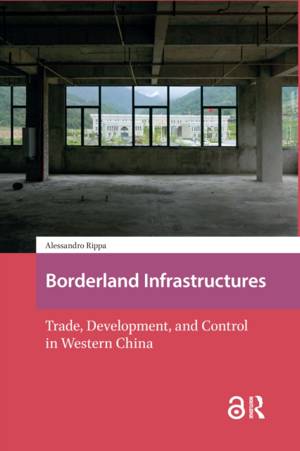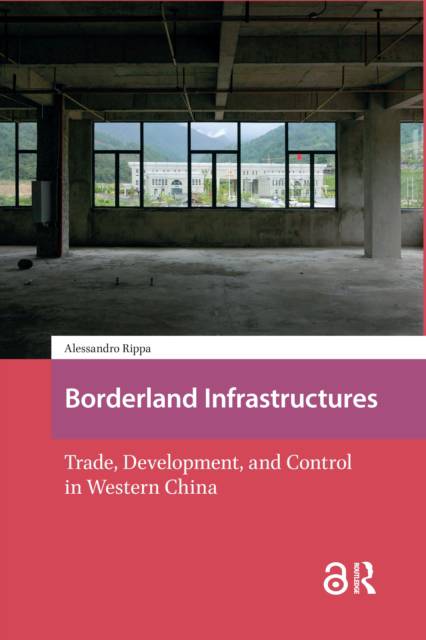
- Afhalen na 1 uur in een winkel met voorraad
- Gratis thuislevering in België vanaf € 30
- Ruim aanbod met 7 miljoen producten
- Afhalen na 1 uur in een winkel met voorraad
- Gratis thuislevering in België vanaf € 30
- Ruim aanbod met 7 miljoen producten
Omschrijving
Across the Chinese borderlands, investments in large-scale transnational infrastructure such as roads and special economic zones have increased exponentially over the past two decades. Based on long-term ethnographic research, Borderland Infrastructures addresses a major contradiction at the heart of this fast-paced development: small-scale traders have lost their historic strategic advantages under the growth of massive Chinese state investment and are now struggling to keep their businesses afloat. Concurrently, local ethnic minorities have become the target of radical resettlement projects, securitization, and tourism initiatives, and have in many cases grown increasingly dependent on state subsidies. At the juncture of anthropological explorations of the state, border studies, and research on transnational trade and infrastructure development, Borderland Infrastructures provides new analytical tools to understand how state power is experienced, mediated, and enacted in Xinjiang and Yunnan. In the process, Rippa offers a rich and nuanced ethnography of life across China's peripheries.
Specificaties
Betrokkenen
- Auteur(s):
- Uitgeverij:
Inhoud
- Aantal bladzijden:
- 282
- Taal:
- Engels
- Reeks:
Eigenschappen
- Productcode (EAN):
- 9789463725606
- Verschijningsdatum:
- 11/09/2020
- Uitvoering:
- Hardcover
- Formaat:
- Genaaid
- Afmetingen:
- 156 mm x 234 mm
- Gewicht:
- 576 g

Alleen bij Standaard Boekhandel
Beoordelingen
We publiceren alleen reviews die voldoen aan de voorwaarden voor reviews. Bekijk onze voorwaarden voor reviews.









